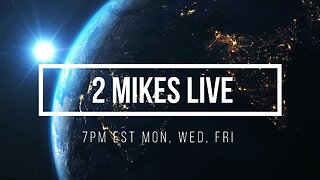10 Blackest States in the United States
In this video we will explore the history and culture of several states in the United States and their contributions to the African American community.
Before we get started make sure you subscribe to Top Things To Know so you don't miss out on more videos like this!
We will delve into the history of these states and how they have played a significant role in shaping African American culture and society. Enjoy!
Tennessee.
Tennessee, located in the southeastern region of the United States, has a significant Black population, with 17% of the population being Black.
Tennessee also played a significant role in the Civil Rights Movement, with events such as the Nashville sit-ins and the Memphis sanitation strike taking place in the state. The Nashville sit-ins, led by students from Fisk University and other local colleges, were a series of nonviolent protests against racial segregation at lunch counters in downtown Nashville. The Memphis sanitation strike, which began in 1968, was a labor strike by African American sanitation workers who were protesting against low wages and poor working conditions.
Today, Tennessee is known for its contributions to African American music, including blues, jazz, and country. The state is home to several famous music cities, such as Nashville and Memphis, that have produced some of the most iconic African American musicians in history, including B.B. King, Aretha Franklin, and Johnny Cash.
Virginia.
Virginia, located in the southeastern region of the United States, has a substantial Black population, with 19% of the population being Black. The state is home to several historically Black colleges and universities, including Hampton University and Virginia State University.
Virginia played a crucial role in the Civil Rights Movement, with events such as the Virginia Student Walkout of 1951 and the Massive Resistance movement taking place in the state. The Virginia Student Walkout of 1951 was a protest by African American students against the unequal conditions of their schools, which were underfunded and segregated.
The Massive Resistance movement was a political campaign launched in the late 1950s by the state government to prevent the desegregation of public schools. The movement was characterized by a range of tactics, including the closing of public schools, the establishment of private segregation academies, and the intimidation of African American students and their families. Despite these efforts, the Civil Rights Movement ultimately prevailed, and Virginia's public schools were desegregated in 1971.
North Carolina.
North Carolina, located in the southeastern region of the United States, has a significant Black population, with 22% of the population being Black. The state is home to several historically Black colleges and universities, including North Carolina A&T State University and Winston-Salem State University.
North Carolina also played a significant role in the Civil Rights Movement, with events such as the Greensboro sit-ins taking place in the state. The Greensboro sit-ins were a series of nonviolent protests that began in 1960 in Greensboro, North Carolina, where African American students from North Carolina A&T State University staged a sit-in at a segregated lunch counter in a Woolworth's department store.
In addition to the sit-ins, North Carolina was also the site of other important Civil Rights Movement events, such as the Wilmington insurrection of 1898, which was a violent coup d'état by white supremacists against the city's elected African American officials, and the Freedom Rides of 1961, which were a series of protests against racial segregation in interstate travel.
Delaware.
Delaware, located in the northeastern region of the United States, has a substantial Black population, with 23% of the population being Black.
Notable figures such as Joe Biden and Kamala Harris hail from Delaware, both of whom have been vocal advocates for racial justice and equality. Biden, who served as a senator from Delaware for over 30 years before becoming Vice President and later President of the United States, has a long track record of supporting civil rights and promoting social justice. Harris, who was born in California but spent much of her childhood in Delaware, is the first African American and Asian American woman to serve as Vice President of the United States.
Alabama.
Alabama played a crucial role in the Civil Rights Movement, with events such as the Montgomery Bus Boycott and the Selma to Montgomery marches taking place in the state. The Montgomery Bus Boycott, which began in 1955, was a protest against racial segregation on public buses in Montgomery, Alabama, after Rosa Parks was arrested for refusing to give up her seat to a white passenger. The boycott lasted for over a year and was a turning point in the Civil Rights Movement. The Selma to Montgomery marches, which took place in 1965, were a series of nonviolent protests against voting rights discrimination, and helped to secure the passage of the Voting Rights Act of 1965.
Before moving forward, make sure you subscribe to Top Things To Know so you don't miss out on more videos like this!
South Carolina.
South Carolina, located in the southeastern region of the United States, has a significant Black population, with 27% of the population being Black.
South Carolina has made important contributions to African American music, literature, and art. The state is known for its vibrant Gullah culture, which is a unique blend of West African, European, and Native American traditions that developed among enslaved Africans in the Lowcountry region of South Carolina.
South Carolina is also home to several historically Black colleges and universities, including Claflin University and South Carolina State University. These institutions have produced many notable figures, including civil rights activist and educator Septima Clark, who graduated from South Carolina State University.
Maryland.
Maryland, located in the northeastern region of the United States, has a substantial Black population, with 31% of the population being Black.
Maryland is home to several historically Black colleges and universities, including Morgan State University and Bowie State University.These institutions have produced many notable figures, including civil rights activist and historian Carter G. Woodson, who graduated from the University of Maryland Eastern Shore.
Maryland has also played a significant role in the Civil Rights Movement, with prominent figures such as Thurgood Marshall and Harriet Tubman hailing from the state. Marshall, who was born in Baltimore, was a pioneering civil rights lawyer who successfully argued several landmark cases before the United States Supreme Court, including Brown v. Board of Education, which led to the desegregation of public schools. Tubman, who was born into slavery on Maryland's Eastern Shore, was a legendary abolitionist who led hundreds of enslaved people to freedom through the Underground Railroad.
Georgia.
Georgia, located in the southeastern region of the United States, has a significant Black population, with 32% of the population being Black.
Georgia played a significant role in the Civil Rights Movement, with notable figures such as Martin Luther King Jr. and John Lewis hailing from the state. King, who was born in Atlanta, was a Baptist minister and civil rights activist who played a pivotal role in the American Civil Rights Movement. He is best known for his role in the Montgomery Bus Boycott and his famous "I Have a Dream" speech, which he delivered at the March on Washington in 1963. John Lewis, who was born in Troy, Alabama but spent much of his adult life in Georgia, was also a prominent civil rights activist and politician. He was a leader in the Civil Rights Movement and served as a U.S. Representative for Georgia's 5th congressional district for over 30 years.
Louisiana.
Louisiana, located in the southern region of the United States, has a large Black population, with 32% of the population being Black.
Louisiana is known for its vibrant music scene, including jazz and blues, which have their roots in African American culture. New Orleans, in particular, is often referred to as the birthplace of jazz, and the city's music scene continues to thrive today. African American musicians such as Louis Armstrong, Fats Domino, and Mahalia Jackson are just a few of the many legendary artists who have contributed to Louisiana's rich musical heritage.
Louisiana is also known for its unique cuisine that blends African, French, and Native American influences. African American cooks and chefs have played an integral role in the development of Louisiana's culinary traditions, particularly in the creation of dishes such as gumbo, jambalaya, and red beans and rice.
Mississippi.
Mississippi, located in the southern region of the United States, has the highest percentage of Black people in the United States, with 38% of the population being Black.
Blues music has its roots in Mississippi's African American culture, with many legendary blues musicians such as B.B. King and Muddy Waters hailing from the state. Mississippi has also produced many notable African American writers, including Richard Wright, who is best known for his novel "Native Son", and Jesmyn Ward, who won the National Book Award for her novel "Sing, Unburied, Sing." Mississippi's cuisine is also known for its unique blend of African, French, and Native American influences, with dishes such as fried catfish, gumbo, and fried chicken being popular throughout the state.
Mississippi has also made progress in terms of voting rights, with the state's African American population playing a key role in electing the state's first African American U.S. Senator, the late Thad Cochran, in 1978.
-
 4:41:10
4:41:10
Tundra Gaming Live
15 hours agoThe Worlds Worst Horror Streamer Has Heart Attack Playing Phasmophobia
81.5K9 -
 1:38:24
1:38:24
JoBlo Originals
12 hours agoFriday Night Flicks!
82.6K16 -
 5:09:20
5:09:20
Nerdrotic
17 hours agoAgatha All Along Geyest Show EVER! Rings of Power Girl POWER! - Friday Night Tights #320 Jonny Law
150K51 -
 1:18:43
1:18:43
Edge of Wonder
14 hours agoPager Explosions: How Technology Can Be Used Against Us
87.9K27 -
 8:19:47
8:19:47
Akademiks
19 hours agoDiddy Arrest Footage LEAKED! Police Say He's ON S*ICIDE watch after Being Locked up in MDC BROOKLYN
215K118 -
 11:44:20
11:44:20
Total Horse Channel
1 day ago2024 WDAA World Championship Show | Friday | Arena One
83.5K2 -
 4:16
4:16
The Worlds Funniest Animals
14 hours agoAnimals Gone Wild Compilation
65.3K21 -
 2:22:56
2:22:56
WeAreChange
17 hours agoDiddy Will Get EPSTEINED?! The Power Brokers Are LOSING IT
109K60 -
 1:56:20
1:56:20
Twins Pod
1 day agoWar Hero or War Criminal? | Twins Pod - Episode 31 - Eddie Gallagher
128K34 -
 2:00:23
2:00:23
2 MIKES LIVE
20 hours ago2 MIKES LIVE #119 Open Mike Friday!
39.1K1